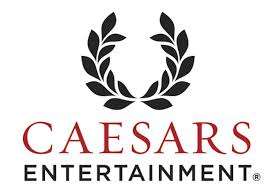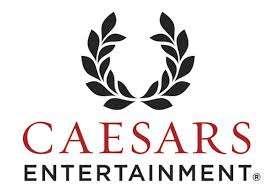Caesars CEOC Unit Files for Bankruptcy
Caesars Entertainment, Inc.’s primary operational unit, Caesars Entertainment Operating Company (CEOC), has voluntary filed for Chapter 11 bankruptcy protection this morning in a Chicago bankruptcy court. However, the filing has been temporarily stayed by a Delaware bankruptcy court, in connection with an involuntary bankruptcy petition filed against the CEOC unit on Monday.
 Today’s action took place on the first day of filing opportunity for the CEOC unit, following parent company Caesars’ hammering out a deal with primary, “first lien” debtholders regarding a reworking of debt. Caesars beat by only three days a January 12th deadline to get 60% of the first-lien debtholders on board with a restructuring of CEOC — and of Caesars in general — that will ultimately wipe nearly $10 billion in debt from CEOC’s books.
Today’s action took place on the first day of filing opportunity for the CEOC unit, following parent company Caesars’ hammering out a deal with primary, “first lien” debtholders regarding a reworking of debt. Caesars beat by only three days a January 12th deadline to get 60% of the first-lien debtholders on board with a restructuring of CEOC — and of Caesars in general — that will ultimately wipe nearly $10 billion in debt from CEOC’s books.
The CEOC unit is the repository of a large number of Caesars’ languishing land-based casino properties. Not all of the parent Caesars’ broad collection of casino properties are contained in the CEOC unit. However, CEOC currently houses ownership for 44 Caesars-brands properties scattered across 13 states and five other countries outside the US. All told, the CEOC unit remains burdened under $18.4 billion in debt.
Today’s filing, given the Delaware event, is not as straightforward as it seems. On Monday, a group of distressed “second lien” shareholders filed an involuntary bankruptcy petition against CEOC in Delaware, following CEOC’s missing of a $225 million interest payment to that debtholder group last month. The second-lien shareholder group collectively holds nearly $2 billion in debt, and is led by Appaloosa Investment Limited Partnership.
The Appaloosa-led group alleges that corporate parent Caesars Entertainment (CEI) has enriched itself by creating what some analysts refer to as a “good Caesars” and a “bad Caesars,” with most of Caesars’ money-losing properties and corporate debt collected under the CEOC umbrella in a series of corporate reshufflings oer the past several years.
The fallout between Caesars and many of its second-lien bondholders led to the Appaloosa group filing a lawsuit last August. Caesars immediately countersued, though that matter remains unresolved, and will now likely be litigated along with the ongoing bankruptcy proceedings.
The preemptive bankruptcy filing on Monday by the Appaloosa group, however, raises significant complications. Since the Delaware action was filed before today’s own voluntary filing by Caesars in Illinois, the Delaware claims assume legal priority. Yesterday, Caesars’ lawyers filed an objection against the involuntary petition, and today, Delaware-based U.S. Bankruptcy Judge Kevin Gross conducted an emergency hearing regarding the filing and Caesars’ objection.
As a result of this morning’s hearing, Judge Gross issued the stay against the Illinois bankruptcy actions, with the judge in that filing, Chicago-based U.S. Bankruptcy Judge Benjamin Goldgar, agreeing not to move forward until Delaware matters are resolved.
Judge Gross did rule in today’s Delaware proceeding that certain routine proceedings connected to the continuation of Caesars operations can continue as petitioned in the Illinois filing. That will allow basic operational expenses such as employee wages, utilities and supplier contracts to continue to be paid while the ongoing legal battle takes shape.
Poker-specific operations conducted by Caesars are not directly impacted by the competing bankruptcy filings, although if Judge Gross rules in favor of the Appaloosa group, then the series of corporate moves which created CEOC itself could be undone. That eventuality could possibly — if unlikely compared to other outcomes — bring such brands as the World Series of Poker into play regarding yet another Caesars corporate reformation.
Currently, the World Series of Poker, the WSOP.com online operation, and even the Rio, the WSOP’s summertime home, all reside in Caesars operational units other than the troubled CEOC entity. Many of the WSOP’s Circuit series events, of course, are held at CEOC-operated properties.
With $10 billion in debt slated to be wiped off the books via Caesars’ in-house plan for CEOC, the bitter battle being waged by the second-lien debtholder group isn’t likely to end any time soon. The CEOC bankruptcy battle has been a long time in the making but was largely inevitable, given the massive leveraging of the old Harrah’s buyout back in 2008 and the collapse of the investment bubble soon after.




















COMMENTS